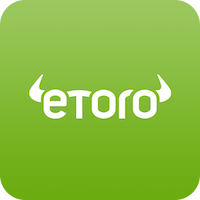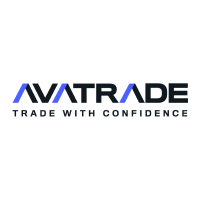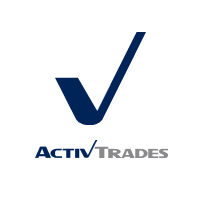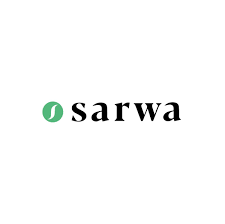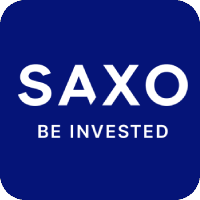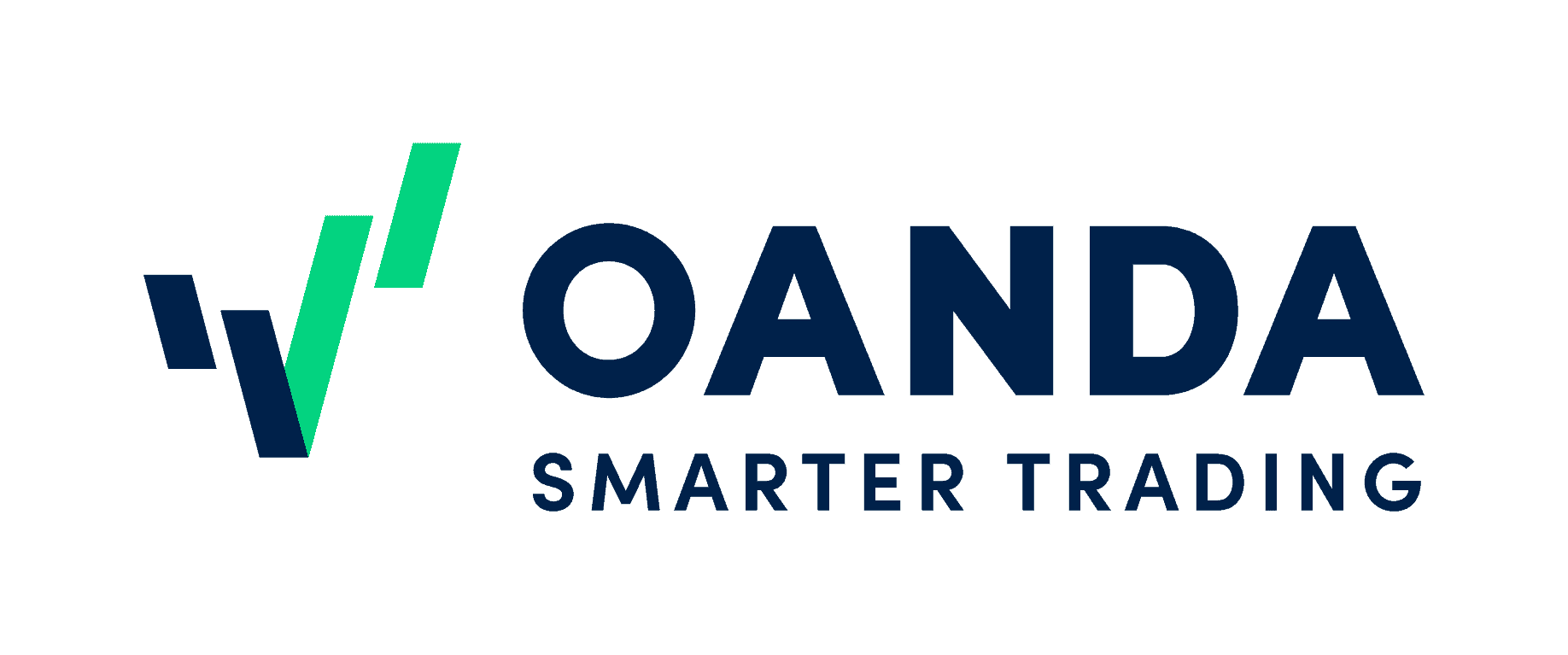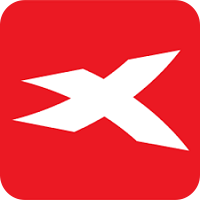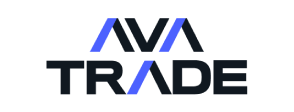Review our top 10 list of the most trustworthy and regulated trading platforms for beginners in the UAE. We tested with real money accounts and compared their key criteria.
Choosing a trading platform for beginners in the UAE can be challenging, as there are many options to consider. Finding a broker that is both safe and matches your investment goals requires careful research and consideration.
Evaluating brokers, comparing their features, and ensuring they are properly regulated are important steps to ensure you select a trustworthy and high-quality platform.
To make it simple to choose a trading platform for beginners, we selected a list of the top 10 brokers and what types of trading they are best for, followed by feature comparisons, reviews and frequently asked questions.
Best trading platform for beginners in UAE
Safety and regulation overview in UAE
The UAE has a robust regulatory framework to ensure fairness, transparency, and investor protection in stock trading, creating a secure environment for investors. Key regulatory bodies include:
Securities and Commodities Authority (SCA): The SCA is the primary regulatory body for securities trading in the UAE. It oversees stock exchanges, brokers, and investment funds, ensuring compliance with local laws and protecting investors from fraud. The SCA mandates brokers to maintain high operational and reporting standards.
Dubai Financial Services Authority (DFSA): The DFSA regulates financial services in the Dubai International Financial Centre (DIFC). It ensures that brokers and financial institutions adhere to stringent standards for transparency, risk management, and investor protection.
Abu Dhabi Global Market (ADGM) Financial Services Regulatory Authority (FSRA): The FSRA governs financial activities within the ADGM, providing a robust framework for stock trading and investment services. It emphasizes market integrity and investor protection.
Central bank of the UAE: The Central Bank regulates banking and financial activities to maintain the overall stability of the UAE financial system. It also plays a role in ensuring that brokers operating in the UAE comply with capital adequacy and anti-money laundering regulations.
Investor protection mechanisms: While the UAE does not have an investor protection fund like the SIPC in the U.S., regulations under the SCA, DFSA, and FSRA ensure client funds are segregated from brokers’ operational funds, reducing the risk of mismanagement.
Tier-1 International Regulators
For UAE investors considering international brokers, working with entities regulated by Tier-1 regulators ensures additional security and transparency. Examples include:
- Securities and Exchange Commission (SEC) (USA): Sets rigorous standards for financial transparency and investor protection, making it a trusted regulator for brokers offering services globally.
- Financial Conduct Authority (FCA) (UK): Enforces stringent rules for client fund segregation, market practices, and operational integrity.
- Australian Securities and Investments Commission (ASIC): Ensures high standards of operational transparency and investor safeguards for brokers.
- Cyprus Securities and Exchange Commission (CySEC): Commonly regulates international brokers serving UAE clients, with protections like the Investor Compensation Fund.
Safety and regulation comparison for top beginner platforms
Here are some key areas that determine how trustworthy a broker is: who they’re top tier regulators are, investor protection they provide, and if they have any history of misconduct, or scandals. Take a look at the table below where we break down this information for you.
| Broker Name | ||
|---|---|---|
| eToro | ||
| AvaTrade | ||
| ActivTrades | ||
| Pepperstone | ||
| Interactive Brokers | ||
| Sarwa | ||
| Saxo Bank | ||
| Trading 212 | ||
| OANDA | ||
| XTB |
Fees compared
Fees of selected platforms are categorized into different classes and compared in the table below. eToro leads with $0 stock trading fees and low forex costs, ideal for cost-conscious traders. Pepperstone and XTB offer competitive forex and CFD fees, while Interactive Brokers provides low per-share pricing for active traders.
| Broker Name | ||
|---|---|---|
| eToro | ||
| AvaTrade | ||
| ActivTrades | ||
| Pepperstone | ||
| Interactive Brokers | ||
| Sarwa | ||
| Saxo Bank | ||
| Trading 212 | ||
| OANDA | ||
| XTB |
OANDA divisions vary; check which applies. See OANDA Divisions. Spreads & fees differ by division/account.
Stock fee class comparison
| Broker Name | ||
|---|---|---|
| eToro | ||
| AvaTrade | ||
| ActivTrades | ||
| Pepperstone | ||
| Interactive Brokers | ||
| Sarwa | ||
| Saxo Bank | ||
| Trading 212 | ||
| OANDA | ||
| XTB |
OANDA divisions vary; check which applies. See OANDA Divisions. Spreads & fees differ by division/account.
Non-trading fees compared
Non-trading fees such as account, deposit and withdrawal fees are compared in the table below. Interactive Brokers has no fees across the board while eToro does have a $5 withdrawal fee.
| Broker Name | ||
|---|---|---|
| eToro | ||
| AvaTrade | ||
| ActivTrades | ||
| Pepperstone | ||
| Interactive Brokers | ||
| Sarwa | ||
| Saxo Bank | ||
| Trading 212 | ||
| OANDA | ||
| XTB |
OANDA divisions vary; check which applies. See OANDA Divisions. Spreads & fees differ by division/account.
Minimum deposit, deposit methods and account opening compared
Minimum deposit, deposit method, how fast it takes to open an account, and other useful information of selected platforms are compared in the table below. eToro’s account opening process was fast and easy compared to other brokers accompanied by many deposit methods.
| Broker Name | ||
|---|---|---|
| eToro | ||
| AvaTrade | ||
| ActivTrades | ||
| Pepperstone | ||
| Interactive Brokers | ||
| Sarwa | ||
| Saxo Bank | ||
| Trading 212 | ||
| OANDA | ||
| XTB |
OANDA divisions vary; check which applies. See OANDA Divisions. Spreads & fees differ by division/account.
Mobile, desktop and web trading platforms compared
Trading platforms are compared in the table below. Interactive brokers has the most comprehensive trading platform compared to the other brokers we picked, Saxo Bank has a very intuitive mobile app represented by our score for them.
| Broker Name | ||
|---|---|---|
| eToro | ||
| AVAtrade | ||
| ActivTrades | ||
| Pepperstone | ||
| Interactive Brokers | ||
| Sarwa | ||
| Saxo Bank | ||
| Trading 212 | ||
| OANDA | ||
| XTB |
Product selection, markets and financial assets compared
Available financial products are compared in the table below. Interactive Brokers has access to every asset type in our selection. eToro has access to all major global markets.
| Broker Name | ||
|---|---|---|
| eToro | ||
| AvaTrade | ||
| ActivTrades | ||
| Pepperstone | ||
| Interactive Brokers | ||
| Sarwa | ||
| Saxo Bank | ||
| Trading 212 | ||
| OANDA | ||
| XTB |
User base of top trading platform for beginners in UAE compared
The number of clients per broker are compared in the table below. eToro currently has the most recorded active users from our selection.
| Broker Name | |
|---|---|
| eToro | |
| AvaTrade | |
| ActivTrades | |
| Pepperstone | |
| Interactive Brokers | |
| Sarwa | |
| Saxo Bank | |
| Trading 212 | |
| OANDA | |
| XTB |
Top trading platform for beginners in UAE reviewed
1. eToro – Social trading and beginners
Min Deposit: $100
Time to open account: 1 Day
Overall fee class: Low
Mobile app score: 4.9
51% of retail investor accounts lose money when trading CFDs with this provider. You should consider whether you can afford to take the high risk of losing your money.
Global social trading broker.
Key points:
- Specializes in social trading, enabling beginners to learn by copying strategies of experienced traders through its CopyTrader feature
- Regulated by the Abu Dhabi Global Market (ADGM) and overseen by the Financial Services Regulatory Authority (FSRA) for UAE clients, ensuring compliance with local standards
- Provides access to multi-asset trading, including forex, stocks, ETFs, cryptocurrencies, and commodities, all on a user-friendly platform
- Features a demo account with $100,000 in virtual funds, allowing new traders to practice risk-free
- Supports Sharia-compliant Islamic accounts, tailored for Muslim traders seeking interest-free trading options
Pros:
- CopyTrader and Smart Portfolios make it easy for beginners to diversify and replicate successful strategies
- Simple interface across desktop and mobile platforms, designed for ease of navigation
- Low minimum deposit of $100, making it highly accessible for UAE clients
- Extensive educational resources, including guides, webinars, and tutorials, catering to new traders
- Arabic-language support enhances accessibility for UAE-based clients
Cons:
- Higher spreads on forex and CFD trading compared to some competitors, which might deter cost-sensitive users
- No direct AED accounts, requiring currency conversion and potentially incurring additional fees
- Limited advanced tools for professional traders looking for in-depth analytics or algorithmic trading options
- Withdrawal fees of $5 per transaction, which could add up for frequent withdrawals
51% of retail investor accounts lose money when trading CFDs with this provider. You should consider whether you can afford to take the high risk of losing your money.
2. AvaTrade – Beginners and CFD traders
Global CFD and forex broker.
Key points:
- Specializes in forex and CFD trading, providing access to over 1,250 financial instruments, including forex, stocks, commodities, indices, and cryptocurrencies
- Regulated by the Abu Dhabi Global Market (ADGM) under the Financial Services Regulatory Authority (FSRA), ensuring compliance with UAE standards
- Offers Sharia-compliant Islamic accounts, allowing interest-free trading for observant Muslim traders
- Features MetaTrader 4 (MT4), MetaTrader 5 (MT5), and the proprietary AvaTradeGO mobile app, designed for ease of use by beginners
- Includes a demo account to help new traders practice and gain confidence before trading with real money
Pros:
- Low minimum deposit of $100, making it accessible to new traders in the UAE
- User-friendly platforms like AvaTradeGO, designed with intuitive navigation and real-time market data
- Comprehensive educational resources, including webinars, tutorials, and trading eBooks tailored for beginners
- Sharia-compliant accounts provide an ethical trading option for Muslim clients
- 24/5 multilingual customer support, including Arabic-language assistance for UAE clients
Cons:
- No direct AED accounts, which may lead to currency conversion fees for deposits and withdrawals
- Higher spreads compared to some other brokers, particularly on major forex pairs
- Limited advanced tools for professional or algorithmic traders
- Inactivity fees of $50 per quarter after 3 months of no trading activity
71% of retail CFD accounts lose money
3. ActivTrades – Advanced traders using custom platforms

Min Deposit: $0
Time to open account: 1-3 Days
Overall fee class: Average
Mobile app score: 4.9
CFDs are complex instruments and come with a high risk of losing money rapidly due to leverage. 83% of retail investor accounts lose money when trading CFDs with this provider. You should consider whether you understand how CFDs work and whether you can afford to take the high risk of losing your money.
Global CFD and forex broker.
Key points:
- Regulated by Tier-1 authorities, including FCA (UK) and CSSF (Luxembourg), but not directly regulated by UAE authorities
- Offers Islamic accounts tailored for observant Muslim traders, with no interest charges on overnight positions
- No minimum deposit requirement, making it accessible to beginners with varying budgets
- Provides access to forex, CFDs, indices, commodities, and ETFs, offering a well-rounded selection of instruments
- User-friendly trading platforms, including ActivTrader and MetaTrader 4/5, designed with tools to simplify trading for new investors
Pros:
- Sharia-compliant Islamic accounts, ensuring suitability for Muslim traders
- No minimum deposit, making it accessible for traders with limited starting capital
- Intuitive platforms (ActivTrader and MT4/MT5), featuring risk management tools and built-in market analysis
- Comprehensive educational resources, including webinars and guides tailored to new traders
- Negative balance protection, safeguarding clients from losing more than their deposits
Cons:
- Not directly regulated in the UAE, which may be a concern for clients seeking local compliance
- Limited product range compared to multi-asset brokers like Saxo Bank or Interactive Brokers
- No direct AED support, leading to possible conversion fees for UAE-based clients
CFDs are complex instruments and come with a high risk of losing money rapidly due to leverage. 83% of retail investor accounts lose money when trading CFDs with this provider. You should consider whether you understand how CFDs work and whether you can afford to take the high risk of losing your money.
4. Pepperstone – Scalpers and algo traders
Global CFD and forex broker.
Key points:
- Renowned for its low-cost forex and CFD trading, Pepperstone provides access to over 180 financial instruments, including forex pairs, indices, commodities, and cryptocurrencies
- Regulated by ADGM (UAE), FCA (UK), ASIC (Australia), and CySEC (Cyprus), ensuring a secure and compliant trading environment for UAE clients
- Offers Islamic account options with no rollover interest, meeting the needs of observant Muslim traders
- Provides access to MetaTrader 4 (MT4), MetaTrader 5 (MT5), and cTrader, making it suitable for beginners and experienced traders alike
- No mandatory minimum deposit requirement, making it highly accessible to traders of all levels
Pros:
- Flexible deposit structure with no minimum deposit requirement, making it ideal for new traders starting with smaller capital
- Islamic accounts available, ensuring interest-free trading for observant Muslim clients
- Access to low spreads and fast execution speeds, enhancing the trading experience
- Supports leading platforms like MT4, MT5, and cTrader, offering robust tools for analysis and trading
- Comprehensive educational resources tailored for beginners, including tutorials, webinars, and market analysis
Cons:
- No proprietary trading platform, relying solely on third-party platforms like MetaTrader and cTrader
- No direct AED deposit option, which could result in currency conversion fees for UAE clients
- Limited Arabic-language support, potentially challenging for non-English-speaking users
74-89% of retail CFD accounts lose money
5. Interactive Brokers – Advanced and professional traders
International broker providing all asset classes.
Key points:
- Renowned for its comprehensive trading platform, offering access to a wide range of financial instruments, including options, stocks, forex, ETFs, and futures
- Regulated by the Dubai Financial Services Authority (DFSA), ensuring compliance with UAE-specific regulatory standards
- No mandatory minimum deposit requirement, making it accessible for traders of all levels
- Features Trader Workstation (TWS), a professional-grade platform, and a Client Portal that offers user-friendly tools ideal for beginners
- Supports multi-currency accounts, including AED, minimizing currency conversion fees for UAE clients
Pros:
- No minimum deposit requirement, enabling new traders to start with any capital level
- Highly customizable trading tools, including simplified versions for beginners to easily navigate
- Multi-currency accounts, including AED, streamline deposits and withdrawals for UAE-based clients
- Extensive educational resources, including webinars, tutorials, and market insights tailored for traders of all experience levels
- Regulated by DFSA, providing a secure and compliant trading environment for UAE clients
Cons:
- Complex platform interface (Trader Workstation) may overwhelm beginners; the Client Portal offers a more user-friendly alternative
- No Islamic account options, which may deter observant Muslim traders
- Limited Arabic-language support, primarily catering to English-speaking users
- Inactivity fees for accounts with low trading activity may impact casual traders
63.3% of retail investor accounts lose money when trading CFDs with IBKR.
6. Sarwa – Beginners investing in diversified portfolios
Stock, ETF and options broker in Middle East.
Key points:
- Regulated by ADGM (Abu Dhabi Global Market) under the Financial Services Regulatory Authority (FSRA), offering a safe and transparent environment for UAE investors
- Offers two primary account types:
- Sarwa Trade: Commission-free trading with no minimum deposit, allowing beginners to start with as little as $1
- Sarwa Invest: Automated investment portfolios with a minimum deposit of $500 for Conventional and Halal Portfolios, and $2,500 for Socially Responsible and Crypto Portfolios
- Sharia-compliant Islamic accounts are available, tailored for Muslim investors seeking ethical investment options.
- Provides a user-friendly mobile app, perfect for managing investments on the go
Pros:
- No minimum deposit for Sarwa Trade, making it highly accessible for beginners
- Sharia-compliant options ensure ethical investment opportunities for observant Muslim clients
- Commission-free trading on Sarwa Trade helps reduce costs for active traders
- Comprehensive educational resources and access to financial advisors for beginner support
- Simple and intuitive platform designed for ease of use, with a focus on beginners
Cons:
- Limited product range, with a focus on US markets and fewer global investment options
- Higher minimum deposit for Sarwa Invest’s specialized portfolios (Socially Responsible and Crypto)
- English-only customer support, which may not cater to all UAE clients
7. Saxo Bank – High-net-worth traders and professionals
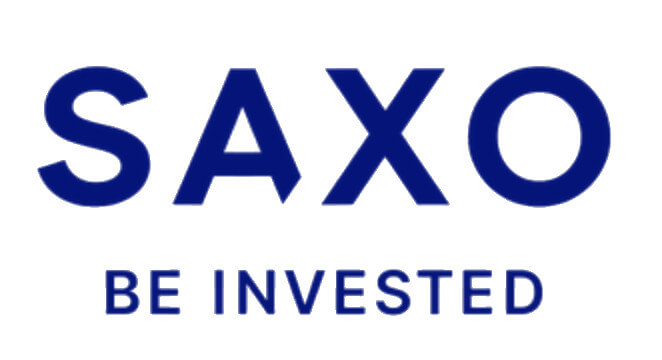
Min Deposit: $5000
Time to open account: 1 Day
Overall fee class: Average to High
Mobile app score: 5.0
69% of retail investor accounts lose money when trading CFDs with this provider.
Comprehensive investment platform for professionals.
Key points:
- Specializes in multi-asset trading, including forex, stocks, options, ETFs, bonds, and CFDs, catering to diverse investor needs
- Regulated by the Dubai Financial Services Authority (DFSA), ensuring compliance and security for UAE-based traders
- $5,000 minimum deposit requirement, which might be challenging for beginners but aligns with the broker’s premium positioning
- Provides professional-grade trading platforms, SaxoTraderGO and SaxoTraderPRO, tailored for both novice and advanced traders
- Comprehensive market research and educational resources, ideal for beginner investors seeking to build their knowledge
Pros:
- Regulated by DFSA, offering a secure and compliant trading environment for UAE clients
- Access to over 35,000 instruments, including local and international markets
- Professional-grade platforms (SaxoTraderGO and SaxoTraderPRO) with robust analytics and user-friendly interfaces
- Extensive educational resources, including webinars, articles, and platform tutorials tailored for beginners
- Competitive fees for active traders, with tiered pricing for frequent trading
Cons:
- High minimum deposit of $5,000 may deter beginner investors with limited capital
- Complex fee structure and margin requirements can be challenging for new traders to navigate
- Limited Arabic-language support, which may not fully meet the needs of UAE-based clients
- No Sharia-compliant Islamic accounts, which might not suit observant Muslim traders
69% of retail investor accounts lose money when trading CFDs with this provider.
8. Trading 212 – Beginners seeking simplicity
Commission-free trading platform.
Key points:
- Focuses on commission-free trading, offering access to stocks, ETFs, and CFDs, making it ideal for budget-conscious beginners
- Not directly regulated by UAE authorities but operates globally under FCA (UK) and CySEC (Cyprus), ensuring international compliance
- Features an intuitive mobile-first trading platform, designed for beginner-friendly navigation and usability
- Provides fractional shares, enabling small-scale investments starting from as little as $1
- Offers a demo account with virtual funds, allowing beginners to practice trading strategies risk-free
Pros:
- Commission-free trading on stocks and ETFs, ideal for beginners looking to minimize costs
- User-friendly platform with simple navigation and educational tools
- Access to fractional shares, making it accessible for traders with limited capital
- No minimum deposit requirement, ensuring accessibility for all UAE-based clients
- Extensive educational resources, including tutorials, videos, and an in-app learning hub
Cons:
- Not directly regulated in the UAE, which may concern traders seeking local compliance
- Limited range of financial instruments compared to multi-asset brokers like Saxo Bank or Interactive Brokers
- No Sharia-compliant Islamic accounts, which may not suit observant Muslim traders
- No AED support for deposits or withdrawals, potentially incurring currency conversion fees
9. OANDA – Forex and CFD traders
Forex-focused broker offering CFDs.
Key points:
- Specializes in forex trading with access to 70+ currency pairs, along with CFDs on indices, commodities, metals, and cryptocurrencies
- Not directly regulated in the UAE but operates under FCA (UK), ASIC (Australia), and CFTC (USA), ensuring compliance with Tier-1 international standards
- Offers a user-friendly trading platform, including its proprietary interface and MetaTrader 4 (MT4) for beginners and advanced traders alike
- Provides a demo account with unlimited virtual funds, perfect for beginners to practice trading
- Features flexible lot sizes and low minimum trade sizes, making it accessible for new traders
OANDA divisions vary; check which applies. See OANDA Divisions. Spreads differ by division/account.
Pros:
- No minimum deposit requirement, making it accessible for beginners with limited capital
- Competitive spreads on major forex pairs, ensuring cost-effective trading
- Advanced risk management tools, including stop-loss and take-profit orders
- Multiple trading platforms, including MT4 and the proprietary OANDA platform, cater to different skill levels
- Extensive educational resources, including webinars, articles, and video tutorials tailored for beginners
Cons:
- Not regulated by UAE authorities like DFSA or ADGM, which may concern some UAE-based clients
- No Sharia-compliant Islamic accounts, limiting its suitability for observant Muslim traders
- Limited range of CFDs compared to multi-asset brokers like Saxo Bank or Interactive Brokers
- No AED support for deposits or withdrawals, potentially incurring currency conversion costs
74-89% of retail CFD accounts lose money
10. XTB – Cost-conscious stock and CFD traders
CFD and stock trading specialist.
Key points:
- Specializes in CFDs and forex trading, offering access to a wide range of assets, including 48+ forex pairs, indices, commodities, stocks, ETFs, and cryptocurrencies
- Not directly regulated in the UAE, but operates under FCA (UK), CySEC (Cyprus), and KNF (Poland), ensuring a secure and compliant trading environment
- Provides a proprietary xStation 5 platform, renowned for its intuitive interface and advanced analytical tools, ideal for both beginners and experienced traders
- Offers Islamic account options, catering to observant Muslim traders by providing interest-free trading
- Features negative balance protection and flexible lot sizes, ensuring risk management for new traders
Pros:
- Low minimum deposit requirement of $0, making it highly accessible for beginners
- The xStation 5 platform is easy to navigate and offers educational features like real-time performance statistics
- Comprehensive educational resources, including tutorials, webinars, and market analysis tailored for beginners
- Competitive spreads and commission-free trading on certain instruments like forex and indices
- Islamic accounts available, offering interest-free trading options for Muslim clients
Cons:
- Not regulated by UAE authorities, such as DFSA or ADGM, which may concern some local traders
- No direct AED support for deposits or withdrawals, potentially incurring currency conversion fees
- Limited customer support in Arabic, primarily catering to English-speaking clients
- Focused on CFDs, with fewer traditional investment products like bonds
81% of CFD retail account lose money
How to find the best trading platform for beginners in the UAE
Selecting the right broker is especially important for beginners in the UAE, as starting on the right platform can make learning to trade easier and less intimidating. Here’s how we evaluate the best options for new traders:
- Safety (Regulation): For beginners, ensuring the safety of your funds is a top priority. We prioritize brokers regulated by trusted UAE authorities such as the Securities and Commodities Authority (SCA), Abu Dhabi Global Market (ADGM), and Dubai Financial Services Authority (DFSA). These regulators enforce strict compliance and client protection policies. Additionally, brokers with Tier-1 international regulation, like the FCA (UK) or ASIC (Australia), add an extra layer of credibility, ensuring that new traders can explore global markets with confidence.
- Fees: Beginners often trade smaller amounts, so competitive and transparent fee structures are crucial. We highlight brokers offering low trading commissions, tight spreads, and clear pricing policies, especially for forex, CFDs, and ETFs. Platforms that waive or minimize currency conversion fees and withdrawal costs are especially advantageous for UAE-based beginners who may trade international assets.
- Non-trading fees: Hidden fees can discourage new traders, so we focus on brokers with minimal or no charges for account maintenance, inactivity, or withdrawals. Platforms that provide clear financial policies and favorable currency exchange rates are preferred, ensuring beginners can keep more of their profits without unexpected deductions.
- Deposit/withdrawal, account opening: Beginners benefit from brokers that offer hassle-free account opening processes, allowing quick registration and setup. Platforms that support local payment methods, including UAE bank transfers and credit cards, simplify deposits and withdrawals for first-time traders. Fast funding options and user-friendly processes reduce barriers, making it easier for beginners to focus on learning.
- Mobile app/trading platforms: New traders need intuitive and reliable trading platforms. We assess brokers offering simple-to-navigate mobile and desktop apps with beginner-friendly features like demo accounts, real-time market alerts, and basic charting tools. Platforms that allow multi-asset trading across forex, CFDs, and indices in one interface enhance the learning experience by enabling diversification without complexity.
Taxation for trading platforms for beginners in the UAE
Understanding tax implications is important for traders in the UAE:
No personal income tax: The UAE does not impose personal income tax on residents. This means profits from stock trading, whether short-term or long-term, are not subject to taxation.
Dividend income: Dividends from UAE-listed companies are generally tax-free for residents. However, dividends from international stocks may be subject to withholding taxes in the source country. Investors should check for double taxation treaties between the UAE and the relevant country to determine if tax relief is available.
Corporate tax implications: Starting in 2023, businesses generating more than AED 375,000 in annual profits may be subject to corporate tax in the UAE. If stock trading is part of a business operation, the profits might fall under this tax regime. Consulting a tax advisor is recommended for business accounts.
Currency conversion considerations: While there are no specific taxes on currency conversions in the UAE, fluctuations in exchange rates when trading international stocks can indirectly impact profitability.
International tax obligations: UAE residents trading in foreign markets should be aware of tax obligations in the respective countries, such as capital gains or dividend taxes. Consulting with a tax advisor can help clarify any cross-border tax requirements.
The UAE’s tax environment is highly favorable for individual traders, but businesses and those trading international stocks should seek professional advice to navigate specific tax rules effectively
How to start trading as a beginner from the UAE
Follow these simple steps to start investing and trading in the UAE:
- Choose a broker: Pick a broker regulated by SCA, ADGM, or DFSA in the UAE, or a trusted global broker offering access to forex, ETFs, indices, and global markets.
- Check local requirements: For UAE-listed assets (DFM, ADX, NASDAQ Dubai), you might need an Investor Number (NIN).
- Open an account: Submit your Emirates ID, passport, proof of address, and bank details. Many brokers offer quick online registration.
- Fund your account: Use UAE bank transfers, credit cards, or e-wallets. Choose brokers that accept AED to avoid extra fees.
- Understand the market: Learn about forex, ETFs, indices, and global markets. Research trends and economic news to make informed decisions.
- Set goals: Decide your investment goals (e.g., growth, income) and choose a strategy that matches your risk level.
- Start trading: Use your broker’s platform or mobile app to trade in forex, ETFs, indices, or UAE-listed assets.
- Manage risks: Diversify your portfolio and use tools like stop-loss orders to limit potential losses.
- Track your investments: Regularly check your portfolio, adjust your strategy, and stay updated with market changes.
- Withdraw or reinvest: Choose to withdraw profits or reinvest them to grow your portfolio long-term.
Which types of trading are legal in the UAE
In the UAE, trading is regulated by authorities like the Securities and Commodities Authority (SCA), the Abu Dhabi Global Market (ADGM), and the Dubai Financial Services Authority (DFSA). These regulatory bodies ensure fairness, transparency, and investor protection. Here are the types of trading allowed in the UAE:
- Stock trading: Buying and selling shares of companies listed on UAE exchanges like the Dubai Financial Market (DFM) and the Abu Dhabi Securities Exchange (ADX), as well as international markets through approved brokers.
- Forex trading: Trading currency pairs is legal through brokers regulated by the SCA, ADGM, DFSA, or international regulators authorized to operate in the UAE.
- Derivatives trading: Trading in futures and options on regulated platforms, including commodities and financial instruments, is permitted under UAE law.
- Commodity trading: Trading physical commodities like gold, silver, and oil is legal, often conducted on platforms like the Dubai Gold and Commodities Exchange (DGCX).
- Mutual funds and bonds: Investing in mutual funds, government bonds, and corporate bonds is available through licensed brokers and financial institutions.
- Cryptocurrency trading: While not fully regulated, cryptocurrency trading is allowed under certain conditions through platforms approved by the UAE’s regulators.
It is essential to use brokers or platforms regulated by UAE authorities or internationally recognized bodies authorized to operate locally. This ensures secure, transparent, and compliant trading.
Conclusion
After reviewing and comparing top brokers, we confidently recommend eToro as the best trading platform for beginners in the UAE in 2025.
With its intuitive platform, social trading features, and regulation by ADGM, eToro offers a secure and beginner-friendly experience. Its CopyTrader tool, low minimum deposit, and extensive educational resources make it ideal for new traders starting their investment journey.
We believe eToro stands out for its ease of use, innovative tools, and accessibility, making it the perfect choice for beginners in 2025.
FAQ
What is an online broker?
In the UAE, an online broker is a financial service provider that allows you to buy and sell financial instruments such as stocks, ETFs, mutual funds, bonds, forex, and derivatives through an online platform or app. These brokers provide access to both local exchanges, such as the Dubai Financial Market (DFM) and Abu Dhabi Securities Exchange (ADX), and international markets, offering tools to monitor portfolios, analyze markets, and execute trades conveniently.
What is a stockbroker?
A stockbroker is a person or company that enables investors to buy and sell stocks or other investment assets. There are three main types of stockbrokers: full-service, discount, and online. A full-service stockbroker manages your money and investments on your behalf and may also offer financial advice.
A discount stockbroker allows you to choose your own investments but buys or sells them for you, and some also offer general information and recommendations to help you decide which assets to buy. An online stockbroker lets you buy and sell investment assets yourself through an online platform or a mobile app. Each type of stockbroker charges fees to cover the cost of running your investment account, buying and selling stocks, and/or trading in a foreign currency.
An online brokerage or investment platform is a website or app that allows you to buy, hold, and sell assets such as stocks, shares, and investment funds. Most providers offer access to companies across a range of industries and markets, including the US, UK, and Europe.
What should I look for when choosing a broker in the UAE?
- Regulation: Ensure the broker is licensed by UAE authorities like the Securities and Commodities Authority (SCA), Abu Dhabi Global Market (ADGM), or Dubai Financial Services Authority (DFSA).
- Fees: Look for brokers with low commissions, transparent pricing, and minimal fees for withdrawals, currency conversions, or inactivity.
- Trading platforms: Opt for brokers offering user-friendly platforms with advanced tools, mobile compatibility, and access to both UAE and international markets.
- Asset variety: Choose brokers providing a wide selection of assets, including UAE-listed stocks, global equities, ETFs, and forex.
- Customer support: Look for brokers offering responsive support in English and Arabic, with availability during UAE market hours.
Are UAE brokers safe?
Brokers regulated by the SCA, ADGM, or DFSA are considered safe, as they adhere to stringent operational and financial standards. International brokers regulated by Tier-1 authorities like FCA or ASIC and authorized to operate in the UAE also provide secure trading environments.
What fees should I expect when trading in the UAE?
Expect brokerage fees, account maintenance charges, currency conversion fees for international markets, and occasional withdrawal fees. Brokers with locally tailored pricing are preferable to minimize costs.
What documents do I need to trade in the UAE?
- Emirates ID or valid passport
- Proof of residence (utility bill or rental agreement)
- Bank account details
- National Investor Number (NIN) for DFM and ADX trading
Can UAE clients trade internationally?
Yes, UAE clients can trade global markets through locally regulated brokers or internationally licensed platforms authorized to operate in the UAE. Ensure the broker provides access to your desired markets and complies with local regulations.
How do I manage risks when trading from the UAE?
Use tools like stop-loss orders, diversify across sectors and markets, and stay informed about market conditions. Select brokers offering features like risk alerts and negative balance protection to safeguard your investments.
What is negative balance protection?
Negative balance protection prevents traders from losing more money than they have deposited. This is especially important for leveraged trading to protect against volatile market movements.
What are ETFs, and why invest in them?
ETFs allow you to invest in a basket of assets like stocks or commodities and trade them like stocks. They offer diversification, low costs, and ease of trading, making them attractive to UAE investors looking to access both local and international markets.
How can I ensure my online trading is secure?
Use strong passwords, enable two-factor authentication, and trade through regulated brokers with encrypted platforms. Regularly monitor your account for unauthorized activity.
What is day trading, and is it suitable for me?
Day trading involves buying and selling securities within the same trading day. It requires time, quick decision-making, and a tolerance for high risk, making it better suited for experienced traders.
What is a brokerage account, and why do I need one in the UAE?
A brokerage account allows you to trade and invest in financial instruments such as stocks, ETFs, and forex. It is essential for accessing local exchanges like DFM and ADX or international markets.
Are brokerage charges negotiable in the UAE?
Some brokers may offer negotiable fees, especially for high-volume traders or business accounts. Inquire with your broker for potential discounts or tiered pricing options.
What is margin trading, and is it available in the UAE?
Margin trading lets you borrow funds to buy more securities than you could with your available capital, amplifying potential returns and risks. It is available in the UAE through brokers authorized for leveraged trading. Ensure you understand the risks before using this feature.
Do brokers in the UAE offer sharia-compliant trading?
Many brokers in the UAE provide sharia-compliant (Islamic) accounts with no interest charges, suitable for observant Muslim traders.
Which local stocks can I trade in the UAE?
UAE traders can access stocks listed on the Dubai Financial Market (DFM), Abu Dhabi Securities Exchange (ADX), and NASDAQ Dubai.
What is the National Investor Number (NIN), and why is it important?
A National Investor Number is required for trading on DFM and ADX, and you can obtain it by registering with these exchanges. More information are available in this guide on how to buy stocks in UAE.
Do UAE residents pay taxes on stock trading?
No, UAE residents are not subject to personal income tax on trading profits. However, be aware of potential taxes when trading international stocks.
What are the most common assets traded in the UAE?
Stocks, ETFs, forex, commodities (like gold), mutual funds, and derivatives (futures and options) are commonly traded by UAE investors.
Can I trade cryptocurrencies in the UAE?
Yes, but only through authorized platforms such as eToro or brokers regulated by UAE authorities offering crypto assets.
What trading hours should I be aware of?
UAE stock markets operate Sunday to Thursday, with DFM and ADX trading hours typically from 10:00 AM to 3:00 PM UAE time.
What are the biggest stock exchanges in the UAE?
The biggest stock exchanges in UAE are listed below.
- The Dubai Financial Market, or DFM for short
- The Abu Dhabi Securities Exchange, or ADX for short
- The NASDAQ Dubai
What are the different stock brokerage accounts available in the UAE?
There 3 different stock brokerage accounts available in the UAE are listed below.
- Local stock brokers: is only available for people living in the UAE (both natives and expats). The Ras Al Khaimah Investment Authority (a UAE government agency) can be used instead.
- A UAE bank brokerage accounts: UAE bank accounts are available to both foreigners and nationals living in the UAE and allow users access to self directed trading and professional managed investing
- Online stock brokers: allows self directed trading, access to international markets and total control of investment through the same dashboard.
Can I invest in the UAE stock market as a tourist or expat?
Everyone can invest in the UAE stock market with a valid NIN number.
What are the benefits of starting trading with an online broker as a beginner?
Online brokers provide user-friendly platforms, educational resources, and tools like demo accounts, allowing beginners to learn and practice trading risk-free. They often offer low fees, flexible deposit options, and access to global and local markets, making it easier for new traders to get started.
How can I learn trading basics before investing real money?
Use demo accounts offered by brokers to practice trading with virtual funds. Many brokers also provide tutorials, webinars, and educational materials designed for beginners. Start by learning about basic concepts such as stocks, forex, ETFs, and how markets operate.
Is forex trading suitable for beginners in the UAE?
Forex trading can be suitable for beginners if approached cautiously. Brokers offering educational resources, risk management tools, and demo accounts can help newcomers understand forex trading dynamics and manage risks effectively.
How much money should I start trading with as a beginner?
It depends on your financial situation and the broker’s minimum deposit requirements. Many platforms in the UAE have no or low minimum deposits, such as $0 or $100, making it accessible for beginners to start small and scale up as they gain confidence.
What trading platform features should beginners prioritize?
Look for platforms with a simple interface, educational resources, risk management tools, and responsive customer support. Features like real-time market data, customizable dashboards, and quick execution also enhance the trading experience for beginners.
What types of accounts are best for new traders in the UAE?
Beginner-friendly brokers often offer accounts like demo accounts, standard trading accounts with low fees, and Islamic accounts for interest-free trading. Choose an account that aligns with your trading goals and preferences.
How do I avoid common beginner trading mistakes?
- Start with a demo account before investing real money.
- Avoid emotional trading by setting clear goals and sticking to a plan.
- Diversify your investments to minimize risk.
- Educate yourself continuously using broker-provided materials.
What role does customer support play for beginner traders?
For beginners, accessible and responsive customer support is crucial. Brokers offering live chat, email, or phone support in multiple languages, including Arabic, can help resolve issues quickly and provide guidance when needed.
Can I trade part-time while working full-time?
Yes, many brokers offer mobile apps and trading platforms with real-time notifications, allowing you to monitor and manage your portfolio on the go. Features like automated trading or pre-set orders can also help part-time traders manage their investments efficiently.
How do I handle trading losses as a beginner?
Losses are a natural part of trading. Start with small investments and use risk management tools like stop-loss orders. Learn from your mistakes by analyzing trades and adjusting your strategy accordingly.
What is the importance of diversification for beginners?
Diversification involves spreading investments across different assets to reduce risk. For example, instead of investing all your money in one stock, allocate funds across stocks, ETFs, and forex to balance potential losses.
Are trading apps secure for beginners?
Yes, trading apps from regulated brokers are secure, using encryption and two-factor authentication to protect your data and funds. Always choose brokers licensed by reputable regulators like DFSA, ADGM, or SCA in the UAE.
Should beginners invest in stocks or forex first?
It depends on your risk tolerance and interests. Stocks may be easier to understand for beginners, while forex trading offers opportunities for smaller initial investments and faster market movement. Use a demo account to explore both.
How can I monitor my trading performance as a beginner?
Use built-in platform tools or third-party apps to track performance metrics such as profit/loss, win rate, and average returns. Reviewing these regularly can help you refine your trading strategies.
How do time zones affect trading for UAE beginners?
UAE stock markets operate Sunday to Thursday, while international markets like the US and UK run Monday to Friday. Adjust your trading schedule to align with the operating hours of the markets you wish to trade in. Many brokers provide notifications and tools to manage this.
What is the best way for beginners to find credible trading information?
Start with broker-provided resources like tutorials, webinars, and FAQs. Use reputable financial news platforms and market analysis tools offered by your broker to stay informed about market trends and opportunities.
Disclaimer
eToro is a multi-asset platform which offers both investing in stocks and cryptoassets, as well as trading CFDs.
Please note that CFDs are complex instruments and come with a high risk of losing money rapidly due to leverage. 51% of retail investor accounts lose money when trading CFDs with this provider. You should consider whether you understand how CFDs work, and whether you can afford to take the high risk of losing your money
This communication is intended for information and educational purposes only and should not be considered investment advice or investment recommendation. Past performance is not an indication of future results.
Copy Trading does not amount to investment advice. The value of your investments may go up or down. Your capital is at risk.
Don’t invest unless you’re prepared to lose all the money you invest. This is a high-risk investment and you should not expect to be protected if something goes wrong. Take 2 mins to learn more
eToro USA LLC does not offer CFDs and makes no representation and assumes no liability as to the accuracy or completeness of the content of this publication, which has been prepared by our partner utilizing publicly available non-entity specific information about eToro.



